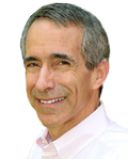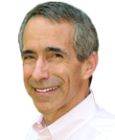
Alcoholism
Is That a Food or a Drug?
What's really inside that food you just ate?
Posted May 5, 2011 Reviewed by Ekua Hagan
Can foods be drugs and drugs foods?
A popular definition of food might include these elements:
- Nourishment
- Taste
- Fuel
- Energy
- Materials
- Appetite
Similarly, a popular definition of drug might engage:
- Medical treatment
- Decreasing symptoms
- Changing risk factors of illness
These different arenas sound pretty separable — yet sometimes they are not. Some foods are felt to be "healthy," as in the present interest in dietary vegetables. And pretty much everyone knows that drugs, even "safe" drugs like Tylenol, can be deadly—why we have the term "side effects." Many drugs change appetite, and foods frequently shift drug absorption, changing their effects.
Yet psychologically and cognitively foods and drugs are very different.
Foods have the presumption of safety. Eat too much and you might feel "sick." You may also increase your chances of weight gain. Yet unless a food has "gone bad" with bacterial toxins, or contains "poisons" (another term for "really bad" drugs like pesticides), food is meant to be safe, and provides for many of us much of life's pleasure.
Drugs on the other hand produce a Promethean bargain. They can save your life or harm you. Overdose on a drug, unlike a food, and you can die.
So it's not surprising that some of the most abused substances on earth are food-drugs.
Foods That Are Drugs
Some substances are treated as foods but clearly are drugs. Perhaps the most commonly acknowledged example is alcohol. Capable of imparting large amounts of calories, alcohol is generally not drunk for nutritional advantage.
It was not always thus. For much of history alcohol provided one of the few ways of ingesting "safe" water. Johnny Appleseed's great appeal, according to Michael Pollan's excellent The Botany of Desire, came from the many wild apple trees he seeded throughout Ohio later used to make applejack — alcohol from apples. The wild apples he sowed so freely were too sour to be used as food. Johnny Appleseed's alcohol-producing apples made him a very popular man.
Yet in the last century and a half, water supplies have markedly improved. Though some drink alcohol to lower their risk of coronary disease while others extol the taste of single malt liquors, alcohol's intoxicating drug effects are usually what people find most alluring.
Since alcohol is both food and drug, it is eminently available — and thereby thoroughly abusable.
Other food-drugs include beverages like tea and coffee. Though they have many useful medicinal properties (half of America's ingested anti-oxidants come from coffee) their stimulant properties can produce caffeinism, a nasty condition that can readily addict.
Food-drugs blur the line in ways that allow the presumed safety of foods to be ascribed to drugs — as what happens to alcohol. Abusability is easy when something has been recognized as an everyday component of the dining table for thousands of years.
And now we are witnessing the rise of the opposite package — drugs as foods.
Drug-Foods
There are many drugs that masquerade as foods. One popular choice is Lazy Cakes — melatonin brownies marketed to the young as somehow comparable to "marijuana brownies." Advertising proclaims eat your "relaxation brownie" and you quickly overcome the overstimulation of popular caffeinated drinks. So you can go "up" with caffeinated "energy beverages" and "down" with lazy cakes, all by ingesting these easy to use "foods."
Children eating lazy cakes may have great difficulties waking up. Energy beverages can provoke caffeinism and deeply troubling insomnia for many of their users. Both types of "food" are also rather expensive ways of obtaining the underlying drugs - melatonin, caffeine, and other stimulants.
Drink Yourself to Sleep?
Newly marketed are recently concocted "sleep and relaxation" drinks. Names you can buy include "reBloom Beauty Sleep Drink" and "Dream Water." Many of these drinks contain melatonin and valerian, while other brews contain typtophan and GABA. "Slow Cow" is supposed to be the perfect "destresser," while "RelaxZen" will help you relieve tension and increase your ability to focus.
Can we believe this marketing? Probably less than we can for financial products.
Keeping Things Separate
In general, there's wisdom in separating drugs from foods. Drugs are meant to have medical and therapeutic effects, while foods act as fuel and materials.
Food-drugs blur that role to our detriment. Though I've written of the many positive uses of tea and coffee, sleep and relaxation drinks give me pause. Drugs like melatonin and GABA are very useful, but they are drugs. And their side effects can be highly unpleasant.
And the new sleep and relaxation drinks generally don't tell you how much of a particular ingredient they contain. When it comes to drugs you want to know what you're ingesting - what drugs, and how much of each.
Medications like melatonin, available over the counter, are generally far, far less expensive than the food-drugs aiming to replace them. A sleep drink, with its sleek container, may cost you several dollars, while tryptophan will cost you pennies.
And when you take a tryptophan pill you'll mentally have a much better idea of what you're taking in — a drug, with drug-like effects. Since the emasculation of the FDA, you still may not know how much tryptophan is really inside that pill, but your sleep drink's components will probably be far murkier.
So when it comes to food-drugs, buyer beware. Such elixirs are generally taken off the market only after numerous people have been harmed.
It's better to ingest foods that really are foods — not disguised drugs.



